In our fast-paced digital world, we often feel compelled to react instantly to every notification, message, and situation that comes our way. The constant pressure to respond immediately has created a culture of reactive behavior that leaves little room for thoughtful consideration and meaningful understanding.
This powerful quote by Tymoff challenges our modern impulses and reminds us of the forgotten art of patient observation. By learning to sit back and observe, we can develop deeper insights, make better decisions, and cultivate more meaningful relationships in both our personal and professional lives.
What Does “Learn to Sit Back and Observe” Really Mean?
At its core, this philosophy encourages us to create mental space between stimulus and response. When we receive information or face a situation, instead of jumping to immediate conclusions or reactions, we take time to process and understand. This approach isn’t about passive inaction, but rather about choosing when and how to respond with intention and wisdom.
The practice of sitting back and observing involves active engagement with our surroundings while maintaining emotional distance. It’s about developing the discipline to watch situations unfold without immediately becoming entangled in them, allowing us to see patterns and connections that might otherwise remain hidden.
Understanding Power of Observation
Conscious observation is a skill that can transform how we interact with the world around us. When we truly observe, we engage all our senses and mental faculties to understand situations at a deeper level. This kind of attention helps us notice subtle details that others might miss.
The power of observation lies in its ability to help us break free from automatic responses. By creating distance between ourselves and immediate reactions, we can access our rational mind rather than being driven purely by emotions. This space allows us to make more informed decisions and respond more effectively to challenges.
Psychological Benefits of Observing and Not Reacting Immediately
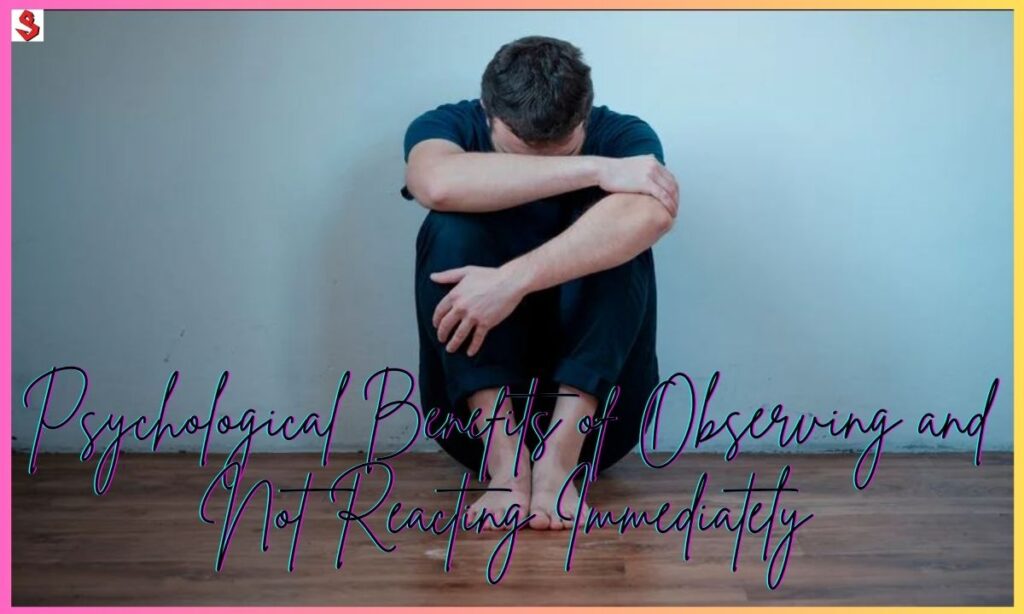
When we learn to observe before reacting, we experience significant psychological benefits. Our stress levels decrease as we’re no longer caught in the cycle of immediate emotional responses. This calmer state of mind allows us to think more clearly and maintain better emotional balance.
The practice of observation also strengthens our mental resilience. By developing the ability to pause and reflect, we become less reactive to external triggers and more capable of maintaining our composure in challenging situations. This increased emotional stability leads to better decision-making and more satisfying relationships.
Mindfulness and Emotional Intelligence
Mindful observation is closely linked to emotional intelligence. When we take time to observe our own thoughts and feelings, we develop greater self-awareness. This awareness helps us understand our emotional triggers and patterns, leading to better self-regulation.
The practice also enhances our ability to recognize and understand others’ emotions. By observing facial expressions, body language, and tone of voice without immediate judgment, we can develop stronger empathy and build more meaningful connections with those around us.
Must Read This Article:Luh Tyler’s Biography: Age, Height, Real Name, Net Worth and Origin
The Importance of Observation in Daily Life
Observation skills play a crucial role in every aspect of our lives. In our professional environment, careful observation helps us understand office dynamics, identify opportunities, and navigate workplace relationships more effectively. These skills can lead to better problem-solving and career advancement.
In our personal relationships, observation helps us become better listeners and more attentive partners, friends, and family members. By truly seeing and hearing others without immediately trying to fix or respond, we create deeper connections and more meaningful interactions.
How to Practice “Learn to Sit Back and Observe”
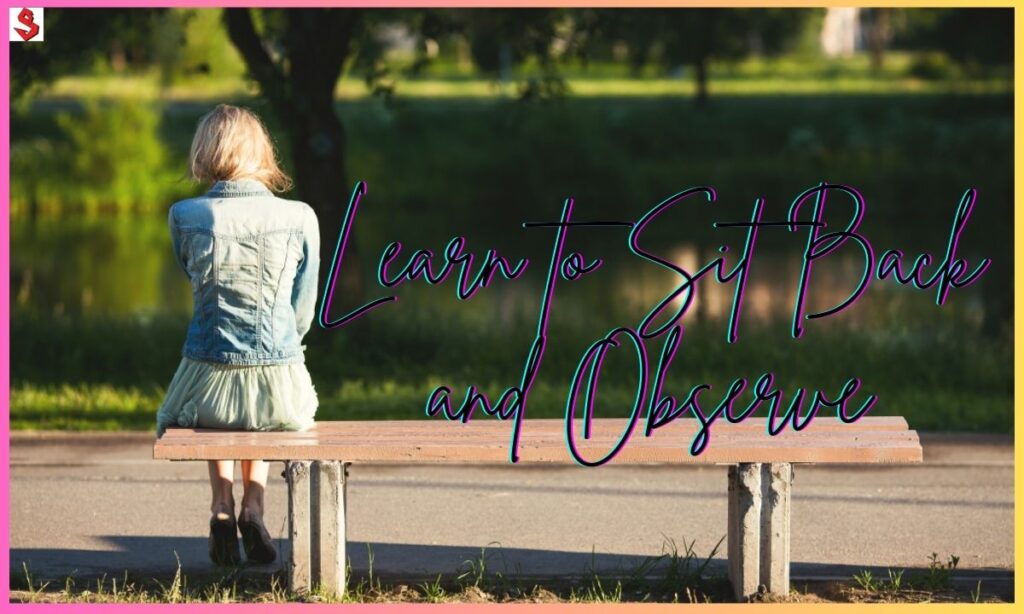
Developing strong observation skills requires consistent practice. Start by taking regular mindful pauses throughout your day. Before responding to situations, take a few deep breaths and consciously observe what’s happening around you and within you.
Create designated times for quiet observation in your daily routine. This could be as simple as spending five minutes watching nature, observing people in a public space, or paying attention to your own thoughts and feelings without judgment. Remember, the goal is not to react but to simply notice and understand.
Mindful Breathing: Your Foundation for Observation
Start your observation journey with the simplest tool available – your breath. Take three deep breaths before responding to any situation. Focus on the feeling of air moving through your body. This creates a natural pause between events and your reactions.
Your breathing becomes an anchor to the present moment. When you feel overwhelmed, return to your breath. Notice how your mind becomes clearer with each inhale and exhale. This simple practice builds the foundation for deeper observation skills.
Journaling: Your Mirror for Self-Reflection
Keep a small notebook with you throughout the day. Write down what you notice about yourself and others. Record your reactions to different situations. Don’t judge your thoughts – simply observe them.
Make daily entries about moments that triggered strong emotions. Look for patterns in your behavior. Your journal becomes a powerful tool for understanding yourself better. Over time, you’ll see how your observation skills grow stronger.
Creating Intentional Pause Points
Build regular pauses into your daily routine. Take a 30-second break before responding to messages. Pause briefly before entering meetings. Create space between receiving information and reacting to it.
Set gentle reminders on your phone to stop and observe. Notice your surroundings during these pauses. Pay attention to your emotional state. These small breaks add up to significant improvements in your observation skills.
Nature Connection: Your Teacher of Presence
Spend at least 15 minutes each day in nature. Watch how leaves move in the wind. Listen to bird songs. Feel the temperature of the air on your skin. Nature provides endless opportunities for practicing observation.
Make your nature time phone-free. Focus entirely on your natural surroundings. Notice how your mind becomes calmer in these moments. Natural settings help train your observation muscles without effort.
Also Read This Blog:Who was Alice Marrow? Everything to Know About Ice-T’s and His Mother
Digital Detox: Clearing Space for Observation
Choose specific times each day to disconnect from devices. Start with 30-minute periods of being completely offline. Notice how your attention changes when screens aren’t demanding it.
Create device-free zones in your home. Keep meals and bedtime free from digital distractions. Observe how your mind feels clearer during these tech-free periods. Digital detox creates space for genuine observation.
Case Studies of Successful Observers Learned to Sit Back
Warren Buffett, one of the world’s most successful investors, attributes much of his success to patient observation. He spends hours reading and analyzing market trends before making investment decisions, demonstrating the power of careful observation in financial success.
Steve Jobs was known for his keen observation skills in understanding consumer behavior and design preferences. His ability to observe and interpret user needs led to revolutionary products that transformed the technology industry. These success stories show how observation can lead to remarkable achievements in various fields.
Balancing Observation with Action
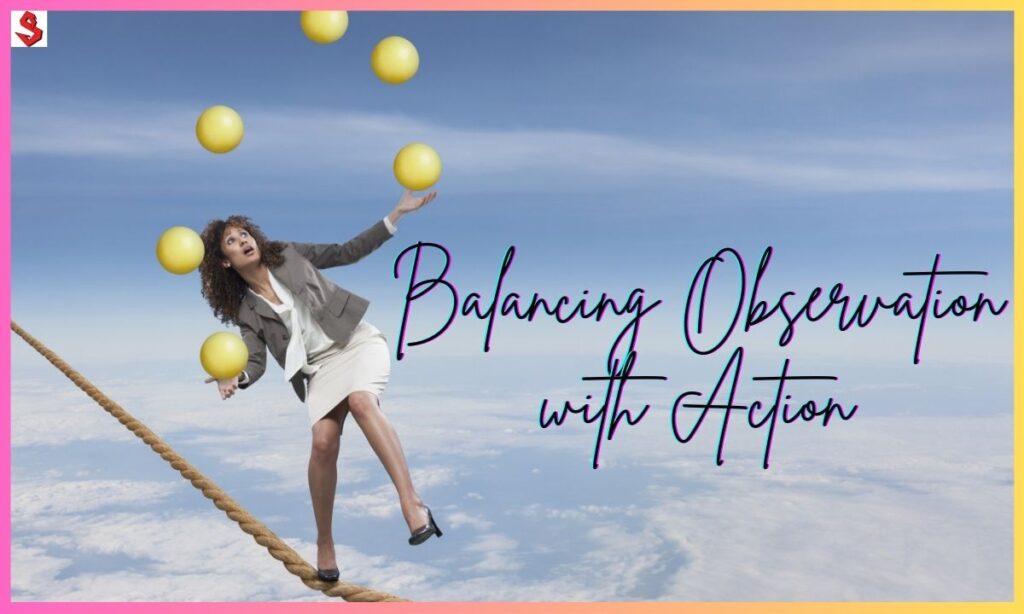
While observation is valuable, it’s essential to find the right balance between observing and acting. Not every situation requires lengthy observation – some moments demand immediate action. The key is developing the wisdom to discern when to observe and when to act.
This balance comes from understanding that observation and action are not mutually exclusive but complementary. Good observation informs better action, and taking action provides new opportunities for observation and learning.
Overcoming Challenges to Observation
Many people struggle with the practice of observation due to various challenges. Information overload and constant digital distractions can make it difficult to maintain focused attention. Social pressure to respond quickly and fear of missing out (FOMO) can also hinder our ability to observe patiently.
To overcome these challenges, start by acknowledging that not everything requires an immediate response. Set boundaries with technology, create quiet spaces for observation, and practice being comfortable with periods of non-action.
FAQ’s
How long should I observe before taking action?
The duration depends on the situation’s complexity and urgency. For simple matters, a few moments might suffice, while complex decisions may require extended observation periods.
Can too much observation lead to missed opportunities?
While over-analysis can lead to paralysis, balanced observation actually helps identify better opportunities and make more informed decisions.
How can I improve my observation skills?
Practice mindful attention in daily activities, maintain a curiosity journal, and regularly engage in people-watching exercises without judgment.
Is observation the same as overthinking?
No, observation is about clear perception and understanding, while overthinking involves anxious or repetitive thought patterns.
Can observation skills be taught to children?
Yes, children can learn observation skills through guided activities, nature walks, and games that encourage attention to detail.
Conclusion
Learning to sit back and observe is a powerful skill that can transform our personal and professional lives. In a world that demands instant reactions, the ability to pause and observe mindfully sets us apart and leads to better decisions and deeper understanding.
By practicing patient observation, we develop greater emotional intelligence, make wiser choices, and build stronger relationships. Remember, not everything needs an immediate reaction – sometimes the most powerful response is simply to observe and understand.
The journey to becoming a skilled observer is ongoing, but the benefits are worth the effort. As we continue to practice this valuable skill, we’ll find ourselves better equipped to navigate life’s challenges and opportunities with wisdom and grace.
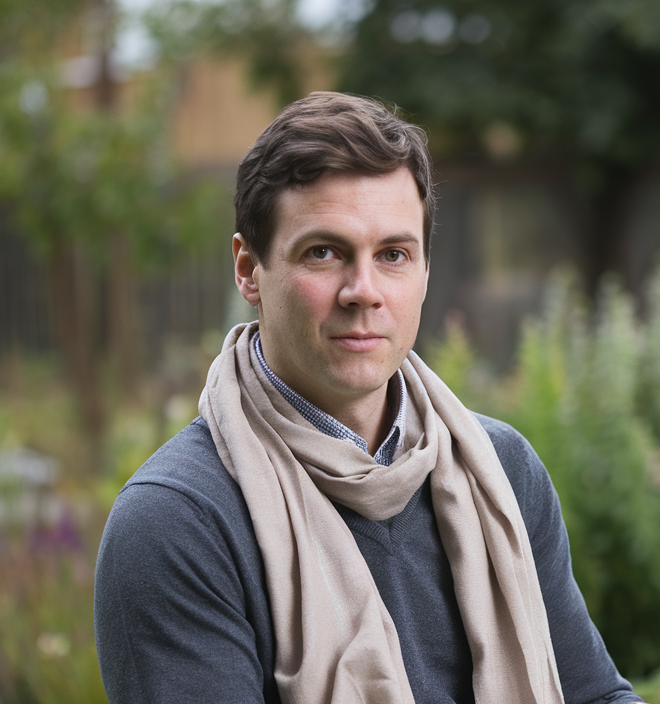
David is a talented content writer and digital marketer with expertise in SEO, social media management, and online marketing. He excels at creating impactful, data-driven content to help businesses connect with their target audience and achieve measurable outcomes.

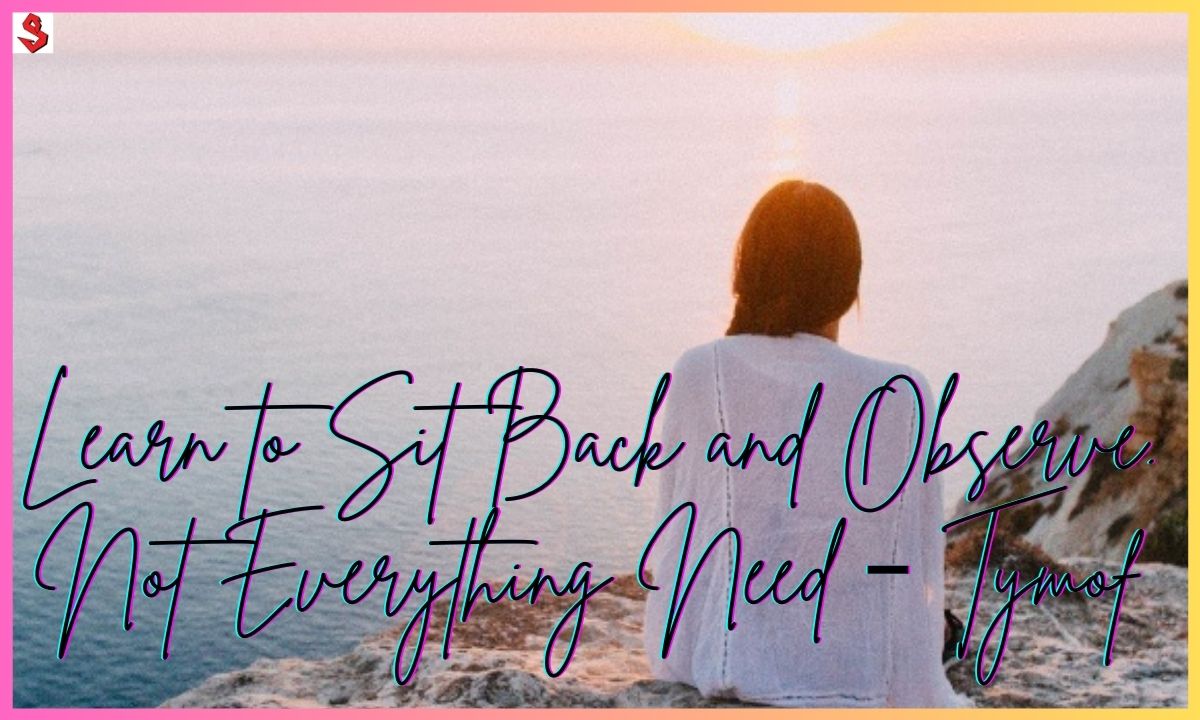




1 thought on “The Power of Observation: Learn to Sit Back and Observe. Not Everything Need – Tymoff”